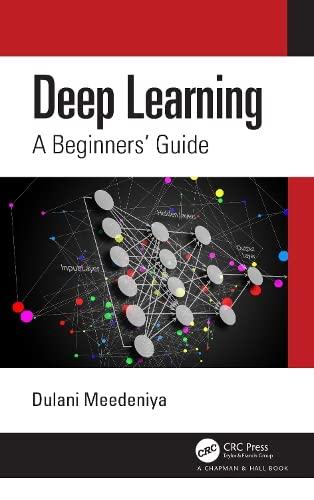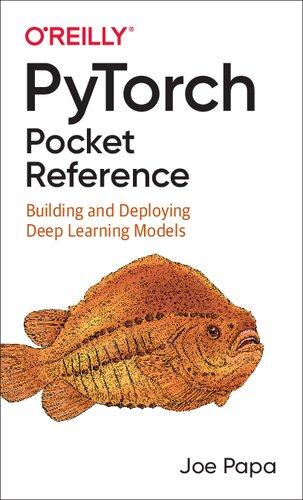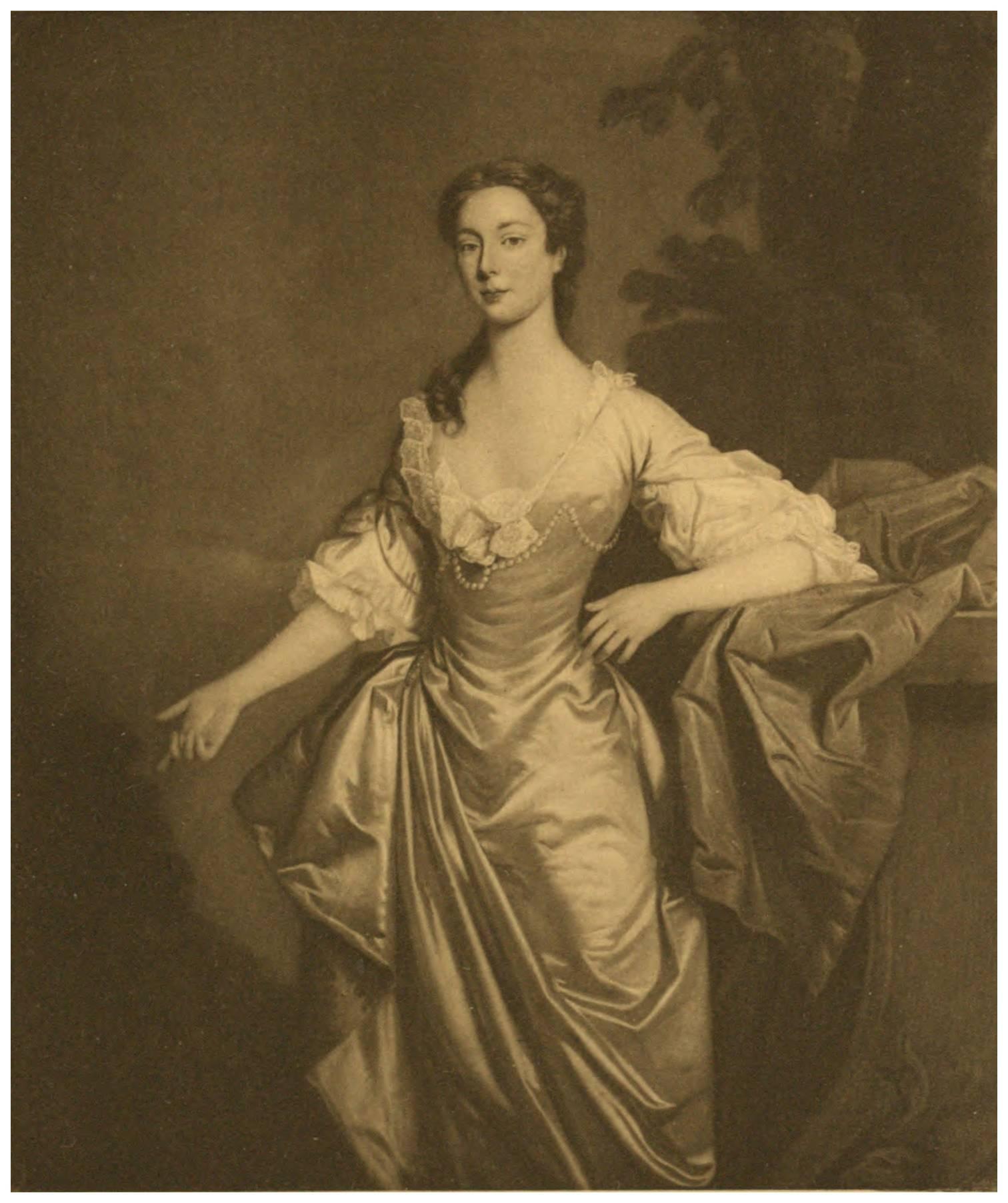
More products digital (pdf, epub, mobi) instant download maybe you interests ...

Introduction to Deep Learning for Engineers: Using Python and Google Cloud Platform 1st Edition Tariq M. Arif
https://ebookmeta.com/product/introduction-to-deep-learning-forengineers-using-python-and-google-cloud-platform-1st-editiontariq-m-arif/

Deep Learning for Finance: Creating Machine & Deep Learning Models for Trading in Python 1st Edition Sofien Kaabar
https://ebookmeta.com/product/deep-learning-for-finance-creatingmachine-deep-learning-models-for-trading-in-python-1st-editionsofien-kaabar/

State-of-the-Art Deep Learning Models in TensorFlow: Modern Machine Learning in the Google Colab Ecosystem 1st Edition David Paper
https://ebookmeta.com/product/state-of-the-art-deep-learningmodels-in-tensorflow-modern-machine-learning-in-the-google-colabecosystem-1st-edition-david-paper/

Deep Learning: A Beginners' Guide 1st Edition Dulani Meedeniya
https://ebookmeta.com/product/deep-learning-a-beginnersguide-1st-edition-dulani-meedeniya/

Deep Learning Approaches to Cloud Security Deep Learning Approaches for Cloud Security 1st Edition
https://ebookmeta.com/product/deep-learning-approaches-to-cloudsecurity-deep-learning-approaches-for-cloud-security-1st-edition/

Learn TensorFlow 2.0: Implement Machine Learning and Deep Learning Models with Python 1st Edition Pramod Singh
https://ebookmeta.com/product/learn-tensorflow-2-0-implementmachine-learning-and-deep-learning-models-with-python-1stedition-pramod-singh/

3D Point Cloud Analysis: Traditional, Deep Learning, and Explainable Machine Learning Methods 1st Edition Shan Liu
https://ebookmeta.com/product/3d-point-cloud-analysistraditional-deep-learning-and-explainable-machine-learningmethods-1st-edition-shan-liu/

PyTorch Pocket Reference: Building and Deploying Deep Learning Models 1st Edition Joe Papa
https://ebookmeta.com/product/pytorch-pocket-reference-buildingand-deploying-deep-learning-models-1st-edition-joe-papa/

Applications of Machine Learning and Deep Learning on Biological Data 1st Edition Faheem Masoodi
https://ebookmeta.com/product/applications-of-machine-learningand-deep-learning-on-biological-data-1st-edition-faheem-masoodi/

Ekaba Bisong
Building Machine Learning and Deep Learning Models on Google Cloud Platform
A Comprehensive Guide for Beginners

Ekaba Bisong OTTAWA, ON, Canada
Any source code or other supplementary material referenced by the author in this book is available to readers on GitHub via the book’s product page, located at www.apress.com/9781484244692 . For more detailed information, please visit http://www.apress.com/source-code .
ISBN 978-1-4842-4469-2 e-ISBN 978-1-4842-4470-8 https://doi.org/10.1007/978-1-4842-4470-8
© Ekaba Bisong 2019
This work is subject to copyright. All rights are reserved by the Publisher, whether the whole or part of the material is concerned, speci�ically the rights of translation, reprinting, reuse of illustrations, recitation, broadcasting, reproduction on micro�ilms or in any other physical way, and transmission or information storage and retrieval, electronic adaptation, computer software, or by similar or dissimilar methodology now known or hereafter developed.
Trademarked names, logos, and images may appear in this book. Rather than use a trademark symbol with every occurrence of a trademarked name, logo, or image we use the names, logos, and images only in an editorial fashion and to the bene�it of the trademark owner, with no intention of infringement of the trademark. The use in this publication of trade names, trademarks, service marks, and similar terms, even if they are not identi�ied as such, is not to be taken as an expression of opinion as to whether or not they are subject to proprietary rights.
While the advice and information in this book are believed to be true and accurate at the date of publication, neither the authors nor the
editors nor the publisher can accept any legal responsibility for any errors or omissions that may be made. The publisher makes no warranty, express or implied, with respect to the material contained herein.
Distributed to the book trade worldwide by Springer Science+Business Media New York, 233 Spring Street, 6th Floor, New York, NY 10013. Phone 1-800-SPRINGER, fax (201) 348-4505, e-mail ordersny@springer-sbm.com, or visit www.springeronline.com. Apress Media, LLC is a California LLC and the sole member (owner) is Springer Science + Business Media Finance Inc (SSBM Finance Inc). SSBM Finance Inc is a Delaware corporation.
This book is dedicated to the Sovereign and Holy Triune God who created the Heavens and the Earth and is the source of all intelligence. To my parents Prof. and Prof. (Mrs.) Francis and Nonso Bisong, my mentors Prof. John Oommen and late Prof. Pius Adesanmi, and to Rasine, my best friend and companion.
Introduction
Machine learning and deep learning technologies have impacted the world in profound ways, from how we interact with technological products and with one another. These technologies are disrupting how we relate, how we work, and how we engage life in general. Today, and in the foreseeable future, intelligent machines increasingly form the core upon which sociocultural and socioeconomic relationships rest. We are indeed already in the "age of intelligence."
What Are Machine Learning and Deep Learning?
Machine learning can be described as an assortment of tools and techniques for predicting or classifying a future event based on a set of interactions between variables (also referred to as features or attributes) in a particular dataset. Deep learning, on the other hand, extends a machine learning algorithm called neural network for learning complex tasks which are incredibly dif�icult for a computer to perform. Examples of these tasks may include recognizing faces and understanding languages in their varied contextual meanings.
The Role of Big Data
A key ingredient that is critical to the rise and future improved performance of machine learning and deep learning is data. Since the turn of the twenty-�irst century, there has been a steady exponential increase in the amount of data generated and stored. The rise of humongous data is partly due to the emergence of the Internet and the miniaturization of processors that have spurned the "Internet of Things (IoT)" technologies. These vast amounts of data have made it possible to train the computer to learn complex tasks where an explicit instruction set is infeasible.
The Computing Challenge
The increase in data available for training learning models throws up another kind of problem, and that is the availability of computational or
processing power. Empirically, as data increases, the performance of learning models also goes up. However, due to the increasingly enormous size of datasets today, it is inconceivable to train sophisticated, state-of-the-art learning models on commodity machines.
Cloud Computing to the Rescue
Cloud is a term that is used to describe large sets of computers that are networked together in groups called data centers. These data centers are often distributed across multiple geographical locations. Big companies like Google, Microsoft, Amazon, and IBM own massive data centers where they manage computing infrastructure that is provisioned to the public (i.e., both enterprise and personal users) for use at a very reasonable cost.
Cloud technology/infrastructure is allowing individuals to leverage the computing resources of big business for machine learning/deep learning experimentation, design, and development. For example, by making use of cloud resources such as Google Cloud Platform (GCP), Amazon Web Services (AWS), or Microsoft Azure, we can run a suite of algorithms with multiple test grids for a fraction of time that it will take on a local machine.
Enter Google Cloud Platform (GCP)
One of the big competitors in the cloud computing space is Google, with their cloud resource offering termed “Google Cloud Platform,” popularly referred to as GCP for short. Google is also one of the top technology leaders in the Internet space with a range of leading web products such as Gmail, YouTube, and Google Maps. These products generate, store, and process tons of terabytes of data each day from Internet users around the world.
To deal with this signi�icant data, Google over the years has invested heavily in processing and storage infrastructure. As of today, Google boasts some of the most impressive data center design and technology in the world to support their computational demands and computing services. Through Google Cloud Platform, the public can leverage these
powerful computational resources to design and develop cutting-edge machine learning and deep learning models.
The Aim of This Book
The goal of this book is to equip the reader from the ground up with the essential principles and tools for building learning models. Machine learning and deep learning are rapidly evolving, and often it is overwhelming and confusing for a beginner to engage the �ield. Many have no clue where to start. This book is a one-stop shop that takes the beginner on a journey to understanding the theoretical foundations and the practical steps for leveraging machine learning and deep learning techniques on problems of interest.
Book Organization
This book is divided into eight parts. Their breakdown is as follows:
Part 1: Getting Started with Google Cloud Platform
Part 2: Programming Foundations for Data Science
Part 3: Introducing Machine Learning
Part 4: Machine Learning in Practice
Part 5: Introducing Deep Learning
Part 6: Deep Learning in Practice
Part 7: Advanced Analytics/Machine Learning on Google Cloud Platform
Part 8: Productionalizing Machine Learning Solutions on GCP
It is best to go through the entire book in sequence. However, each part and its containing chapters are written in such a way that one can shop around and get out what is of primary interest. The code repository for this book is available at https://github.com/Apress/building-ml-and-dlmodels-on-gcp . The reader can follow through the examples in this book by cloning the repository to Google Colab or GCP Deep Learning VM.
Acknowledgments
I want to use this opportunity to appreciate the staff and faculty of Carleton University School of Computer Science; they made for a friendly and stimulating atmosphere during the writing of this book. I want to thank my friends at the graduate program, Abdolreza Shirvani, Omar Ghaleb, Anselm Ogbunugafor, Sania Hamid, Gurpreet Saran, Sean Benjamin, Steven Porretta, Kenniy Olorunnimbe, Moitry Das, Yajing Deng, Tansin Jahan, and Tahira Ghani. I also want to thank my dear friends at the undergraduate level during my time as a teaching assistant, Saranya Ravi and Geetika Sharma, as well as my friend and colleague at the Intelligent Systems Lab, Vojislav Radonjic. They all were most supportive with a kind and generous friendship that kept me going despite the obvious pressures at the time. I want to particularly thank Sania Hamid, who helped me type portions of the manuscript. Nonetheless, I take full responsibility for any typographical errors contained in this book.
I want to thank my friends Rasine Ukene, Yewande Marquis, Iyanu Obidele, Bukunmi Oyedeji, Deborah Braide, Akinola Odunlade, Damilola Adesinha, Chinenye Nwaneri, Chiamaka Chukwuemeka, Deji Marcus, Okoh Hogan, Somto Akaraiwe, Kingsley Munu and Ernest Onuiri who have offered words of encouragement along the way. Mr. Ernest taught a course in Arti�icial Intelligence during my undergraduate years at Babcock University that kickstarted my journey in this �ield. Somto provided valuable feedback that guided me in improving the arrangement of the chapters and parts of this book. In the same breadth, I thank my friends at the Carleton University Institute of African Studies, Femi Ajidahun and June Creighton Payne, with special thanks to a mentor and senior friend, who took me as a son and was most kind, supportive, and generous, (late) Prof. Pius Adesanmi, the then Director of the Institute. Prof. Adesanmi was sadly lost to the illfated Ethiopian Airlines Flight 302 (ET 302) crash shortly after takeoff from Addis Ababa on March 10, 2019. I want to appreciate Mrs. Muyiwa Adesanmi and Tise Adesanmi for their love, friendship, and strength. May they �ind comfort, now, and in the future.
I would like to thank Emmanuel Okoi, Jesam Ujong, Adie Patrick, Redarokim Ikonga, and the Hope Waddell Old Students’ Association
(HWOSA) family; they provided community and fun to alleviate the mood during stressful periods. Special thanks to my roommates at the time, Jonathan Austin, Christina Austin, Margherita Ciccozzi, Thai Chin, and Chris Teal; I had a fantastic place to call home.
I am especially grateful to my former colleagues and friends at Pythian, Vanessa Simmons, Alex Gorbachev, and Paul Spiegelhalter, for their help and support along the way. I am thankful to the brethren of the House Fellowships at Ottawa, Toronto, Winnipeg, Calabar, and Owerri; they constitute my own company and are friends for life. I also want to thank the staff and crew at Standard Word Broadcasting Network (SWBN) for working together to keep the vision running as I engaged this project. Special thanks to Susan McDermott, Rita Fernando, and the publishing and editorial team at Apress for their support and belief in this project. Many thanks to Vikram Tiwari and Gonzalo Gasca Meza, who provided the technical review for this manuscript.
Finally, I conclude by giving special thanks to my family, starting with my loving Father and Mother, Francis Ebuta and Nonso Ngozika Bisong; they have been a rock in my life and have been there to counsel and encourage me, I am truly grateful for my loving parents. To my siblings, Osowo-Ayim, Chidera, and Ginika Bisong, and the extended Bisong family for the constant stream of love and support. Finally, a big shout-out to my aunty and friend, Joy Duncan, for her love and friendship; she is most dear to my heart. Also, my appreciation to Uncle Wilfred Achu and Aunty Blessing Bisong, they have been most kind to me and I am very thankful.
Table of Contents
Part I: Getting Started with Google Cloud Platform
Chapter 1: What Is Cloud Computing?
Categories of Cloud Solutions
Cloud Computing Models
Chapter 2: An Overview of Google Cloud Platform Services
Cloud Compute
Cloud Storage
Big Data and Analytics
Cloud Arti�icial Intelligence (AI)
Chapter 3: The Google Cloud SDK and Web CLI
Setting Up an Account on Google Cloud Platform
GCP Resources: Projects
Accessing Cloud Platform Services
Account Users and Permissions
The Cloud Shell
Google Cloud SDK
Chapter 4: Google Cloud Storage (GCS)
Create a Bucket
Uploading Data to a Bucket
Delete Objects from a Bucket
Free Up Storage Resource
Working with GCS from the Command Line
Chapter 5: Google Compute Engine (GCE)
Provisioning a VM Instance
Connecting to the VM Instance
Tearing Down the Instance
Working with GCE from the Command Line
Chapter 6: JupyterLab Notebooks
Provisioning a Notebook Instance
Shut Down/Delete a Notebook Instance
Starting a Notebook Instance from the Command Line
Chapter 7: Google Colaboratory
Starting Out with Colab
Change Runtime Settings
Storing Notebooks
Uploading Notebooks
Part II: Programming Foundations for Data Science
Chapter 8: What Is Data Science?
The Challenge of Big Data
The Data Science Opportunity
The Data Science Process
Chapter 9: Python
Data and Operations
Data Types
More on Lists
Strings
Arithmetic and Boolean Operations
Arithmetic Operations
Boolean Operations
The print() Statement
Using the Formatter
Control Structures
The if/elif (else-if) Statements
The while Loop
The for Loop List Comprehensions
The break and continue Statements
Functions
User-De�ined Functions
Lambda Expressions
Packages and Modules
import Statement from Statement
Chapter 10: NumPy
NumPy 1-D Array
NumPy Datatypes
Indexing + Fancy Indexing (1-D)
Boolean Mask
Integer Mask
Slicing a 1-D Array
Basic Math Operations on Arrays: Universal Functions
Higher-Dimensional Arrays
Creating 2-D Arrays (Matrices)
Creating 3-D Arrays
Indexing/Slicing of Matrices
Matrix Operations: Linear Algebra
Matrix Multiplication (Dot Product)
Element-Wise Operations
Scalar Operation
Matrix Transposition
The Inverse of a Matrix
Reshaping
Reshape vs. Resize Method
Stacking Arrays
Broadcasting
Loading Data
Chapter 11: Pandas
Pandas Data Structures
Series
DataFrames
Data Indexing (Selection/Subsets)
Selecting a Column from a DataFrame
Selecting a Row from a DataFrame
Selecting Multiple Rows and Columns from a DataFrame
Slice Cells by Row and Column from a DataFrame
DataFrame Manipulation
Removing a Row/Column
Adding a Row/Column
Data Alignment
Combining Datasets
Handling Missing Data
Identifying Missing Data
Removing Missing Data
Another random document with no related content on Scribd:
venial. Nevertheless, as some of them lived on in a lesser degree in his son, we must remember his arrogance, his melodramatic airs, his overweening self-will, and his strange inconsistencies. In no one else would these vices and defects have been tolerated; that they were overlooked in him is the highest tribute that can be paid to the splendour of his services and the sterling worth of his nature.
If we look further back into the antecedents of the Pitt family, we find it domiciled at or near Blandford in Dorset, where it had produced one poet of quite average abilities, Christopher Pitt (1699–1748), whose translation of Virgil had many admirers. The love of adventure and romance, so often found in West Country families, had already been seen in Thomas Pitt (1653–1726), who worked his way to the front in India despite the regulations of the Company, became Governor of Madras, and made his fortune by very questionable transactions.37 His great stroke of good fortune was the purchase of the famous diamond, which he thereafter sold to the Regent of France for nearly six times the price of purchase. He married a lady who traced her descent to a natural son of James V of Scotland; and to this union of a daring adventurer with the scion of a chivalrous race we may perhaps refer the will-power and the mental endowments which shone so brightly in their grandson, the first Earl of Chatham.
On his mother’s side the younger Pitt could claim a distinguished descent. Her maiden name was Hester Grenville, and she was the daughter of Richard Grenville and Hester, Countess Temple. The appended table will show the relation of the Pitt and Grenville families:
RICHARD GRENVILLE m. HESTER (Countess Temple).
RICHARD GRENVILLE
GEORGE GRENVILLE HESTER GRENVILLE (created (Earl Temple), (1712–70) (m. Baroness Chatham in 1761) m. (1711–79). Elizabeth Wyndham). William Pitt (created Earl of | Chatham in 1766).
GEORGE GRENVILLE
WILLIAM WYNDHAM GRENVILLE | (2nd Earl Temple, (Lord Grenville), | and Marquis of Foreign Minister | Buckingham), d. 1813. in 1791–1801, | and 1806–7. | |
HESTER JOHN (2nd Earl HARRIET WILLIAM PITT JAMES CHARLES (1755–80) m. Lord of Chatham) (1758–86) (the younger) (1761–79). Mahon (3rd Earl (1756–1835). m. Mr. E. (1759–1806). Stanhope). Eliot.
LADY HESTER STANHOPE, etc.
The personality of Lady Chatham, if less remarkable, is more lovable than that of her husband. In contrast to his theatrical, lordly, and imperious ways, she shone by her simplicity and sweetness. His junior by many years, she accepted his devotion with something of awe, and probably felt his oft recurring attacks of gout, for which he magniloquently apologized, to be a link between them; for the Jove of the Senate became docile and human when he was racked with pain.38 Her tender care at these times, and at others her tactful acquiescence in his moods and plans, ensured tranquillity and happiness in their household. Not that she lacked firmness of character, when occasion required; but we may ascribe her pliability to the personal ascendancy of her lord, to the customs of the times, and to her perception of the requisites for a peaceful existence. She carried her complaisance so far as to leave to her consort the choice of the residence at Hayes, near Bromley, in Kent, which he bought at the end of the year 1754. The following are the almost Griselda-like terms in which she defers to his opinion on the matter: “For the grand affair proposed by my dear love, I have only to reply that I wish him to
follow what he judges best, for he can best judge what sort of economy suits with the different plans which he may choose to make hereafter. Whatever you decide upon will be secure of being approved by me.”39
When a woman renounces all claim to a voice in the selection of her abode, we may be sure that she will neither interfere much in her husband’s political career, nor seek to shine in a salon of bluestockings. In fact, Lady Chatham’s influence on her children was purely domestic. Her realm was the home. There is scarcely a trace of any intellectual impress consciously exerted upon her gifted son, William; but her loving care ensured his survival from the many illnesses of his early years; and she dowered him with the gentler traits for which we search in vain in the coldly glittering personality of Chatham. As examples of her loving care for her children, I may cite the following passages from her letters. In August 1794, when she felt old age coming on apace, she wrote in this tender strain:
I feel that I cannot support the idea of leaving you, my beloved sons, without saying unto ye how truly my fond affection has increasingly ever attended ye both, and that my constant prayers have been daily addresst to the Omnipotent Disposer of all events, that you might be directed in all things by the blessing of heavenly wisdom....
Or take this gentle chiding to William (25th April 1796):
I do not [hear] from you, my dear son, but I hear often of you in a way that makes up to me in the best manner possible for your silence. I cannot, however, help wishing that my pleasure was increased by receiving now and then a few words from you, and immediately comes almost a reflection that obliges me to unwish it again, that I may not take up any part of the small leisure you have to enjoy a little relaxation from your various calls.
The old lady long retained her vigour; for in the autumn of 1795 she describes herself as “stout enough both in body and mind to wish the wind to shift to the east so that the fleet might not be detained.”40 Indeed, in the even strength of her body, as in the constancy of her mind, she far excelled her husband. We find Wilberforce, in the summer of 1791, entering the following note in his diary: “Old Lady Chatham, a noble antiquity—Lady Chatham asked about Fox’s speaking—is much interested about politics—seventy-five years old, and a very active mind.”41

Doubtless, her pride in the triumphs of her second son explains the singular buoyancy of her nature almost up to the time of her death. She must have recognized him as pre-eminently her child. In appearance he certainly favoured her. A comparison of the two noble Gainsboroughs of mother and son preserved at Orwell Park shows William to have been more a Grenville than a Pitt. His nose—that feature on which caricaturists eagerly fastened, and on which he was said proudly to suspend the House of Commons—had nothing in common with Chatham’s aquiline and terrifying prow. So, too, the whole bearing of the son was less fiery and less formidable than that of the father. In Chatham there lay the potentialities of a great warrior; but in the son’s nature these powers were wholly subordinate to the faculties that make for supremacy in civil affairs, namely, patience, reasonableness, and aptitude for logic and finance. Above all, there shone in the younger Pitt a harmony of the faculties, in which the father was lacking.
There is ample proof of the devotion with which Pitt regarded his parents. His letters to them were long and loving; but while he addressed Chatham in the stilted terms which the Earl himself affected, he wrote to his mother in a simple and direct style that tells of complete sympathy. In one of his youthful letters to her he apologized humbly for some little act of inattention; and in later years the busy Prime Minister often begged her forgiveness for his long silence. In all 363 letters to his mother have survived, and prove the tenderness of his love. Clearly also he valued her advice; for at the crisis of the early part of 1783 he asked her opinion whether or no he should take office as Prime Minister.42 For the most part the letters contain little more than references to private affairs, which prove the warmth of his family feelings; but sometimes, especially in the later years when the overworked Prime Minister could rarely visit his mother at her home, Burton Pynsent in Somerset, he gives reasons for hoping that the progress of measures through Parliament, or the state of the negotiations with France during the Revolutionary war, would permit him to pay her a visit. The letters bear touching witness to the hopefulness of spirit which buoyed him up; but sometimes they are overclouded by disappointments in the political sphere, which were all
the keener because they held him to his post and prevented the longed-for stay at Burton Pynsent in August or at Christmas. In such cases Lady Chatham’s replies are restrained and dignified. I shall sometimes draw on this correspondence, especially where it reveals Pitt’s hopes for the work of the session or the conclusion of peace.
Ingenious pleaders from the time of Macaulay onwards have shown their skill in comparing the achievements of father and son. The futility of all such tight-rope performances must be obvious to those who remember the world-wide difference between the cataclysmic forces and novel problems of the revolutionary era and the comparatively simple tasks of the age of Chatham. We shall have cause, later on, to insist on the difference in efficiency between Frederick the Great and Frederick William II as an ally; and not even the most fervent panegyrists of Chatham will dare to assert that the illled and underfed armies of Louis XV were foes as redoubtable as the enthusiastic hosts called into being and marshalled by the French Revolution and Napoleon.
Nevertheless, there is one of these fallacious comparisons which deserves a brief notice. Lady Chatham, on being asked by one of her grandchildren which was the cleverer, the Earl of Chatham or Mr. Pitt, replied: “Your grandpapa without doubt.”43 The answer is remarkable. No woman in modern times has been blessed with such prodigality of power and talent both in husband and son; and we, with a knowledge of the inner forces of the two periods which she could not possess, may perhaps be inclined to ascribe her verdict to the triumph of the early memories of the wife even over the promptings of maternal pride. Explain it as we may, her judgement is certainly a signal instance of self-effacement; for the gifts of tact, prudence, and consistency whereby Pitt restored England to her rightful place in the years 1783–93 were precisely those which he derived from her.
It has often been remarked that great men have owed more to the mother’s nature than to that of the father; and, while Chatham dowered his second son with the qualities that make for versatility, display, and domination, his mother certainly imparted to him forethought, steadiness of purpose, and the gentler gifts that
endeared him to a select circle of friends. Here again, one might suggest a parallel between Pitt and his great opponent, Napoleon, who owed to his father characteristics not unlike those named above, but received from his mother the steel-like powers of mind and body which made him so terrible an opponent.
Enough has been said to indicate some of the influences of heredity which helped to shape the career of Pitt. It is a topic on which only sciolists would venture to dogmatize. Even in his early youth William began to outshine his elder brother. In their boyhood, mostly spent at Hayes, the difference of temperament between John and William made itself felt to the disadvantage of the former. He was reserved, not to say heavy and indolent, where William was bright and attractive. “Eager” is the epithet applied to him by Lady Chatham in 1766. The eldest son, having none of the intellectual gifts and graces of Chatham, could not satisfy the imperious cravings of the father, with the result that William received an undue share of admiration. He was “the wonderful boy.” John was designed for the army, with results no less unfortunate for England than a similar choice proved ultimately to be for France in the case of Joseph Bonaparte. Well would it have been for the United Kingdom had John Pitt allowed the glorious name of Chatham to sink to comfortable mediocrity on the paternal estates of Hayes or Burton Pynsent, and never to be associated with the Isle of Walcheren. His colleagues in the Cabinet learnt to respect his judgement as that of a safe man; but, as the sequel will show, he was utterly lacking in energy and the power of inspiring others.
William, having alertness of mind and brightness of speech, was designed for Parliament. Or rather, this was his choice at the age of seven. In May 1766, on hearing that his father was raised to the Peerage, he told his tutor, the Rev. Edward Wilson, in all seriousness, that he was glad he was not the eldest son, but that he could serve his country in the House of Commons like his papa. 44 The words have often been misquoted, even by Earl Stanhope, the boy being reported as saying, “I want to speak in the House of Commons like papa.” The
words, when correctly cited, are remarkable, not for childish conceit, but for a grave and premature sense of responsibility. They show the strength of that patriotic instinct which inspired every action of his career, spurring him on to his early studies, and to the complex and crushing duties of his youth and manhood. They sound the keynote of his character and enable us to form some notion of the strength of that life-long desire to serve his native land. This, his first recorded utterance, links itself in noble unison with that last tragic gasp of 23rd January 1806—“My country. How I leave my country!”
The health of the little William was so precarious that he and his brothers and sisters spent much time at the seaside resorts, Weymouth and Lyme Regis, which were not far from Burton Pynsent, an estate bequeathed by an admirer to the Earl of Chatham. Yet notwithstanding all the care bestowed on him, the boy had but a frail hold on life. Illness beset him during fully the half of his youth. At the age of fourteen he was still short and thin and weighed only six stone, two pounds.45 Observers, however, agree that his spirits always rose superior to weakness; and to this characteristic, as also to his indomitable will, we may attribute his struggling on through an exhausting career to the age of forty-seven. The life of Pitt is a signal proof of the victory which mind can, for a time, win over matter.
Very naturally, his parents decided to have him trained at home rather than at a public school. Chatham, while at Eton, formed the most unfavourable impression of the public school system and summed it up in his remark to Shelburne that he had “scarce observed a boy who was not cowed for life at Eton; that a public school might suit a boy of a turbulent, forward disposition, but would not do where there was any gentleness.”46
The tutor chosen for this purpose was the Rev. Edward Wilson, of Pembroke Hall (now College), Cambridge, who had charge of him from his sixth to his fourteenth year. The mutual affection of tutor and pupil is seen in a letter which the tutor wrote at Weymouth in September
1766, describing William as often standing by him while he read, and making remarks that frequently lit up the subject and impressed it on the memory. His ardour, he adds, could not be checked.47 Wilson’s training seems to have been highly efficient, as will appear when we come to consider the phenomenal attainments of his pupil at the time of his admission to the University of Cambridge.
It is perhaps significant that that later prodigy of learning and oratorical power, Macaulay, was also not brought into contact with our public school system. Both of these remarkable men may have owed some of their originality to the thoroughness of the private tuition which they received before entering the university. Had they passed through the mill of a public school they would certainly have been less angular, and would have gained in knowledge of men. Pitt especially might have cast off that reserve and stiffness which often cost him so dear. But both of them would assuredly have lost in individuality what they might have gained in bonhomie. Still more certain is it that those hotbeds of slang would have unfitted them for the free expression of their thoughts in dignified and classical English. The ease with which, from the time of his first entrance into Parliament, Pitt wielded the manifold resources of his mother tongue may be ascribed partly to hereditary genius but also to daily converse with one of the greatest of orators. It was Chatham’s habit to read with his favourite son passages from the Bible or from some other great classic. We also know from one of the Earl’s private memoranda that he made it a special study to clothe his thoughts in well-chosen words.48 Indeed, he never talked but always conversed. We may be sure, then, that even the lighter efforts of the statesman must have been to the boy at once an inspiration to great deeds, a melodious delight, and a lesson in rhetoric. What youth possessed of genius would not have had his faculties braced by learning English from such a tongue, by viewing mankind through such a lens?
This education at home probably explains one of Pitt’s marked characteristics, namely, his intense hopefulness. Brought up on the best authors, imbued with the highest principles, and lacking all knowledge of the seamy side of life, he cherished an invincible belief in
the triumph of those aims which he felt to be good and true. This is an invaluable faculty; but it needs to be checked by acquaintance with the conduct of the average man; and that experience Pitt scarcely ever gained except by hearsay. Sir George Trevelyan has remarked that the comparative seclusion of Macaulay in youth led to his habitual overestimate of the knowledge usually possessed by men. Certainly it led to the creation of that singular figment, “Macaulay’s school-boy.” A similar remark probably holds true of the quality of Pitt’s nature noted above. Partly, no doubt, his hopefulness was the heritage bequeathed by Chatham; but it was strengthened by Pitt’s bookish outlook on life.
The surroundings of his childhood and early youth must also have favoured the growth of that patrician virtue, confidence. Up to the year 1774 he lived on his father’s estates at Hayes and Burton Pynsent, amidst some of the choicest scenery in the south of England. The land overflowed with prosperity, which was rightly ascribed in large measure to the genius of Chatham. Until the shadow of the American War of Independence fell on the youth, in his seventeenth year, he was the favourite son of a father whom all men revered; and his lot was cast in a land which seemed to be especially favoured. Thus pride of family and pride of race must have helped to stiffen the mental fibre of a youth on whom nature and art alike showered the gifts and graces of a chivalrous order. In a coarse nature the result would have been snobbishness. In William Pitt the outcome was devotion to the ideals of his father and buoyant confidence as to their ultimate triumph.
In some respects there is truth in the statement of Windham that Pitt never was young. Certainly for so delicate a plant the forcing process was perilously early and prolonged. In the Pitt Papers (No. XI) I have found a curious proof of the hold which the boy had over Latin at a very early age. It is a letter written to his father, the general correctness of which contrasts strangely with its large round letters enclosed within lines. It is not dated, but probably belongs to 1766, that is, to the seventh year of his age.
MI CHARISSIME PATER,
Gaudeo audire te rursum bene valere. Vidimus primates Mohecaunnuck et Wappinger, Tribuum Indicorum a septentrioli America, qui veniunt in Angliam supplicare regem ob quosdam agros. Gulielmus Johnson, eques auratus, desiderabat auxilium eorum in bello, et illi omnes abierunt ut pugnarent contra Gallos; sed, cum domum rediebant, sentiebant Batavos arripuisse omnes suos agros. Vulgus apud Portland illos parum commode tractabat.
Sum, mi charissime Pater, tibi devinctissimus, GULIELMUS PITT.
I have also found a curious proof of the stilted style in which the boy wrote to his father, while on the very same day he wrote to his brother almost in the terms which a boy of eleven would use. To the Earl of Chatham he thus begins a letter of 31st July 1770:
From the weather we have had here I flatter myself that the sun shone on your expedition, and that the views were enough enlivened thereby to prevent the drowsy Morpheus from taking the opportunity of the heat to diffuse his poppies upon the eyes of the travellers.49
This almost rises to the pomposity of style with which Chatham described to his son William the stinging of carriage-horses by wasps. The insects figure as “an ambuscade of Pandours,” and the horses as “these coursers of spirit not inferior to Xanthus and Podarges.”50
Here on the other hand is the boy’s letter to his brother: Hayes, July 31 1770.
DEAR BROTHER,
I assure you that I am obliged to you beyond what is to be expressed for your epistle or journal. The dialogue between you and your host is very entertaining to those not interested in the want of provision in the inn. But I fancy it was not so to you, as it afforded little or no hope of dinner unless you could dine on the small tithes. The 2 Masons are incomparable. I think the intended candidate is to the full as likely as G. O. to succeed, and for what I know deserves it better. As I have seen neither the statue at Guilford nor that at South Carolina, I cannot judge which excels in point of workmanship, but I know which of the two noble Persons (in my opinion) is the superior. Your white mare I take to be more of the species of an elephant than any other; and can carry houses or castles on her back. Tho’, great as She is, Long Sutton might perhaps keep her under her feet. These two mornings I have rode out before breakfast. Your Greek was excellent, and (I think) with practice you may become a Thucydides. Dapple is in good health; and we have taken the liberty to desire him to honour us with following the little chaise. I hope all stock is pure well.
I am, dear brother, Affectionately yours, WILLIAM PITT. 51
The contrast between the two letters proves that Chatham’s influence must have overwrought the boy’s brain and inflated his style. The letter to John evinces a joy in life natural to a boy of eleven, together with a wide range of interests and accomplishments.
That the writers of the period also did much to form the boy’s style will appear from his first poem, “On the Genius of Poetry,” which bears date May 1771.52 It seems to be the joint product of Harriet and William Pitt:
Ye sacred Imps of thund’ring Jove descend, Immortal Nine, to me propitious, bend Inclining downward from Parnassus’ brow; To me, young Bard, some Heav’nly fire allow. From Aganippe’s murmur strait repair, Assist my labours and attend my pray’r. Inspire my verse. Of Poetry it sings. Thro’ Her, the deeds of Heroes and of Kings Renown’d in arms, with fame immortal stand. By Herno less, are spread thro’ ev’ry land
Those patriot names, who in their country’s cause Triumphant fall, for Liberty and Laws. Exalted high, the Spartan Hero stands, Encircled with his far-renowned bands. Whoe’er devoted for their country die, Thro’ Hertheir fame ascends the starry sky. Shetoo perpetuates each horrid deed; When laws are trampled, when their guardians bleed, That shall the Muse to infamy prolong Example dread, and theme of tragic song. Nor less immortal, than the Chiefs, resound The Poets’ names, who spread their deeds around. Homer shall flourish first in rolls of fame; And still shall leave the Roman Virgil’s name; With living bays is lofty Pindar crown’d; In distant ages Horace stands renown’d. These Bards, and more, fair Greece and Rome may boast, And some may flourish on this British Coast. Witness the man, on whom the Muse did smile, Who sung our Parents’ fall and Satan’s guile, A second Homer, favor’d by the Nine.
Sweet Spenser, Jonson, Shakspear the divine. And He, fair Virtue’s Bard, who rapt doth sing The praise of Freedom and Laconia’s King. But high o’er Chiefs and Bards supremely great Shall Publius shine, the Guardian of our state.
Him shall th’ immortal Nine themselves record, With deathless fame his gen’rous toil reward, Shall tune the harp to loftier sounding lays And thro’ the world shall spread his ceaseless praise. Their hands alone can match the Heav’nly strain And with due fire his wond’rous glories sing.
The poem, which is in William’s handwriting, shows that by the age of twelve he had acquired the trick—it was no more—of writing in the style of Pope and Johnson. The lines remind us of the felicitous phrase in which Cowper characterized the output of that school:
The click-clock tintinnabulum of rhyme.
But they show neatness of thought and phrase. In a word, they are good Johnsonese.
The same quality of sonorous ponderosity is observable in Pitt’s letters of 3rd June 1771 to his uncle the statesman, Earl Temple, thanking him for a present, in which the names of Lyttelton and Coke are invoked. In the following sentences the trend of the boy’s thoughts is very marked: “I revere this gift the more, as I have heard Lyttelton and Coke were props of the Constitution, which is a synonimous [sic] term for just Liberty.” The “marvellous boy” ends by quoting part of a line of Virgil, which still more powerfully inspired him:
avunculus excitat Hector.
The next year saw the production of a play, which he and his brothers and sisters acted at Burton Pynsent on 30th May 1772. Here again the motive is solely political: a King, Laurentius, on his way homeward, after a successful war, suffers shipwreck, and is mourned as dead. The news leads an ambitious counsellor, Gordinus, to plot the overthrow of the regency of the Queen; but his advances are repelled
by a faithful minister, Pompilius—the character played by William Pitt— in the following lines:
Our honoured Master’s steps may guide her on, Whose inmost soul she knew; and surely she Is fitted most to fill her husband’s throne, She, whom maternal tenderness inspires, Will watch incessant o’er her lovely son And best pursue her dear Laurentius’ plans.
Pompilius warns the Queen of the plot of Gordinus, and persuades her to entrust her son Florus to his care in a sylvan retreat. Thither also Laurentius comes in disguise; for, after landing as a forlorn survivor, he hears of dangerous novelties that had poisoned men’s minds and seduced the army from allegiance to the Queen. Pompilius, while visiting the royal heir, sees and recognizes Laurentius, brings him to Florus, and prepares to overthrow the traitors. In due course the King’s adherents defeat the forces of Gordinus, who is slain by Laurentius himself, while Pompilius, his standard bearer, kills another arch-conspirator. The King grants a general pardon in these lines:
Us it behoves, to whom by gracious Heav’n The cares of nations and of States are giv’n— Us it behoves with clemency to sway That glorious sceptre which the gods bestow. We are the shepherds sent to tend the flock, Sent to protect from wrong, not to destroy. Oh! Florus! When thou govern’st our domains, Bear these thy father’s precepts in thy mind. Thro’ love control thy subjects, not thro’ fear. The people’s love the bulwark of thy throne. Give not thy mind to passion or revenge, But let fair Mercy ever sway thy soul.53
It is fairly certain that none of the children but William could have written these lines; and the fact that the mainspring of the action is political further stamps the play as his own. Some Spirit of the Future seems to have hovered over him, for the mental derangement of George III in 1788 brought to the front questions relating to a Regency not very unlike those sketched by the boy playwright. The sense of loyalty and devotion which informs the play was then also to guide Pitt’s footsteps through a bewildering maze. Indeed this effusion seems almost like a marionette’s version of the Regency affair: Laurentius is a more romantic George III, Pompilius quite startlingly foreshadows Pitt the Prime Minister, the Prince of Wales (an undutiful Florus) and Fox may pass for the conspirators; and the motif of the play twangs a mimic prelude to the intrigues of Carlton House. In the acting of the play the elder brother seems far to have surpassed William, who bore himself stiffly and awkwardly. Such was the testimony of young Addington, a lifelong friend, who saw the play acted on another occasion at Hayes.54 The criticism is valuable as showing how ingrained in Pitt’s nature was the shyness and gaucherie in public which were ever to hamper his progress.
Juvenile authorship has its dangers for a delicate child; and we are not surprised to find from notes left by his first tutor to Bishop Tomline that the half of Pitt’s boyhood was beset by illnesses which precluded all attempt at study. But nothing stopped the growth of his mental powers, which Wilson summed up in the Platonic phrase, “Pitt seemed never to learn but merely to recollect.” At the age of fourteen and a half, then, he was ripe for Cambridge. It is true that youths then entered the English Universities at an age fully as early as the Scottish lads who went from the parish school, or manse, straight to Edinburgh or Aberdeen. Charles James Fox, Gibbon, and the lad who became Lord Eldon, entered Oxford at fifteen. Wilberforce, who at seventeen went up from Hull to St. John’s College, Cambridge, was probably the senior of most of the freshmen of his year; but the case of Pitt was even then exceptional.
Cambridge on the whole enjoyed a better reputation than Oxford for steady work; but this alone does not seem to have turned the
thoughts of the Earl of Chatham so far eastwards. He himself was an Oxford man, and the distance of Cambridge from Burton Pynsent, the usual abode of the family, would naturally have told in favour of Oxford.
The determining facts seem to have been that Wilson’s companionship was deemed essential, and that he, as a graduate of Pembroke Hall, Cambridge, turned the scale in favour of his own college. This appears from Wilson’s letter of 2nd December 1772 to his wife:
I could not have acted with more prudence than I have done in the affair of Pembroke Hall. Mr. Pitt is not the child his years bespeak him to be. He has now all the understanding of a man, and is, and will be, my steady friend thro’ life.... He will go to Pembroke, not a weak boy to be made a property of, but to be admir’d as a prodigy; not to hear lectures but to spread light. His parts are most astonishing and universal. He will be fully qualified for a wrangler before hegoes, and be an accomplished classick, mathematician, historian and poet.55
How often have similar prophecies led to disappointment. In the case of the “wonderful boy,” they did but point the way to a career whose meridian splendour has eclipsed the tender beauty of its dawn.
